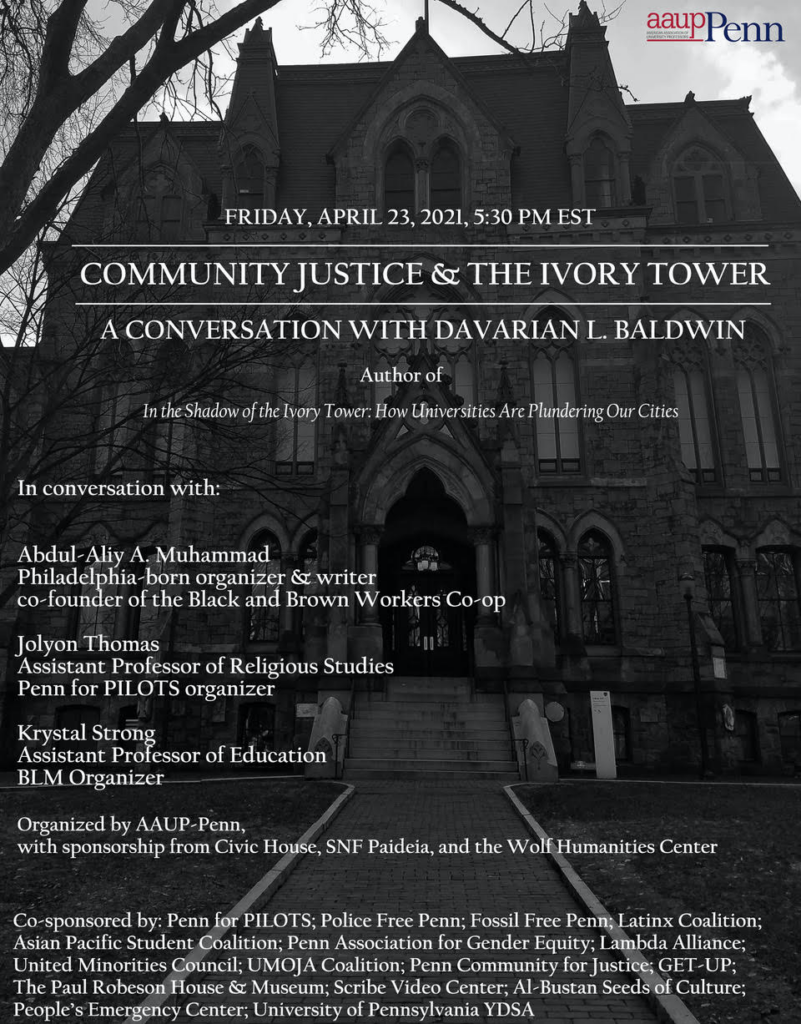In the past week it has come to light that the University of Pennsylvania Museum has for over 35 years held, studied, and at times displayed the human remains of a child named Tree Africa, a member of West Philadelphia’s MOVE organization. The bones of 14-year-old Tree Africa, and possibly also 12-year-old Delisha Africa, were reportedly handed over by the medical examiner’s office to Penn and Princeton anthropologists for forensic study in the 1980s after the May 13, 1985 killing of eleven West Philadelphia residents, when Philadelphia Police dropped an aerial bomb on the MOVE residence and let fires destroy over 60 homes in the Cobbs Creek neighborhood adjacent to our university.
For decades, neither Penn nor Princeton contacted the MOVE organization and the Africa family about the existence of these remains. Instead, the bones were in the possession of two anthropology professors, Princeton emeritus professor Alan Mann (who worked at Penn until 2001) and Penn adjunct professor and museum curator Janet Monge. The Penn Museum has stated that both anthropologists were attempting to determine the identity of the remains for over three decades. During this time the bones were used for student research, as in the case of at least one Penn undergraduate senior thesis. Recently Monge has been using them as teaching props in a public online course, “REAL BONES: Adventures in Forensic Anthropology,” hosted by Princeton. While the course has now been removed by the distance learning platform Coursera, just last week over 4,000 students were enrolled. The remains have been repeatedly passed between Penn and Princeton, including Penn Museum Director Christopher Woods’ hasty return of the bones to Dr. Mann on Sunday April 18, 2021.
AAUP–Penn stands with the Africa family as they mourn and absorb this devastating news. From our commitment to community and racial justice, we support their demands, which include the immediate return of their children’s remains.
AAUP–Penn likewise stands with Princeton faculty who have called for university accountability to the Africa family, and calls on Penn to do better than issue an online apology.
On April 26, 2021 the University of Pennsylvania and the Penn Museum issued an online apology to the Africa family and stated the institution’s intentions of returning the remains and reviewing the Museum’s “practices of collecting, stewarding, displaying, and researching human remains.” This is a first step toward recognizing and repairing the harm done to the Africa family, but the process continues to be flawed, as this apology was communicated to the family via the media at the same time that the family was holding its own live press conference.
Any earnest commitment to community justice begins with showing respect toward and building trust with those who have been harmed. Building trust entails acknowledging the long history of the university’s racism and experimentation on Black and Indigenous bodies by social scientists as well as medical doctors. From Penn Anthropology to Penn Medicine, this history spans from the nineteenth-century Morton cranial collection to the use of the MOVE family remains and the recent medical experimentation conducted by Penn dermatologist Albert Kligman upon the incarcerated people of Holmesburg Prison between 1951-1974, people whose families also remain uncompensated.
Beyond hiring lawyers to investigate how and why the MOVE family remains were used by University researchers, President Amy Gutmann and the Board of Trustees need to commit to a full and transparent process of repair and financial compensation, beginning with direct community involvement in the investigative process. The University, including its senior administrators and the Board of Trustees, cannot move forward from decades, even centuries, of disavowal via closed-door investigations. A transparent process is integral to any just outcome. It is not only faculty who are to blame for such a travesty of scholarly procedure and social justice; that responsibility must be shared across the hierarchy of “overseers” and administrators.
AAUP–Penn further supports efforts to account for the University’s broader effects on and its responsibility to West Philadelphia’s Black communities, including the payment of PILOTs to the public school system.
AAUP–Penn also calls for a thorough review of all the holdings of the Penn Museum, and transparency around past and current pedagogical, curatorial, and research practices. A commitment to anti-racism requires more than simply teaching about medical ethics or the federally mandated Native American Graves Protection and Repatriation Act. It involves collaborative decision-making in consultation with affected community members around the Museum’s and the University’s legacies of slavery and colonial violence.



